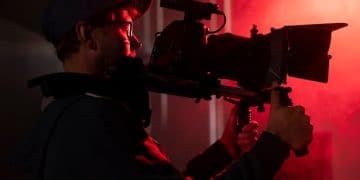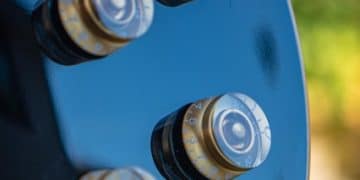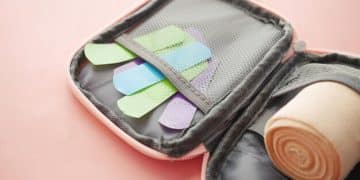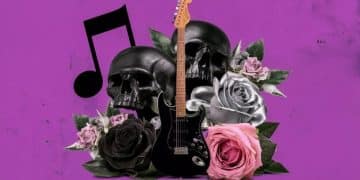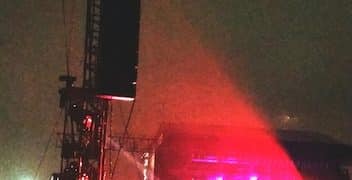Concert Hydration Strategies: Top 3 Ways to Stay Hydrated During a Show
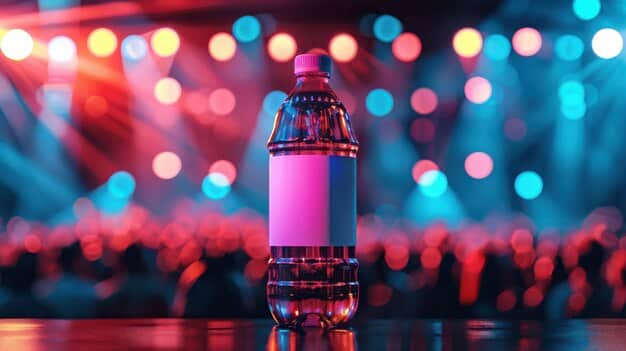
Concert hydration strategies are crucial for enjoying live music events safely; this article outlines three key methods—planning ahead with pre-hydration, understanding electrolyte balance, and avoiding dehydrating substances—to ensure you stay healthy and energized throughout the show.
Attending a concert is an exhilarating experience, but it’s easy to get caught up in the music and forget about your health. Staying hydrated is essential to enjoying the show without feeling drained or unwell. This article delves into effective concert hydration strategies, providing you with three actionable ways to keep your energy levels up and your body functioning optimally so you can have the best concert experience possible.
Why Hydration is Critical at Concerts
Concerts are high-energy events that require you to be on your feet, often dancing and singing along. This physical activity, combined with crowded conditions and potentially hot weather, can quickly lead to dehydration. Understanding why hydration is crucial is the first step in implementing effective strategies.
Dehydration can manifest in several ways, from mild symptoms like fatigue and headache to more severe issues such as dizziness and heatstroke. By recognizing the signs and taking proactive measures, you can prevent these problems and ensure you stay healthy throughout the concert.
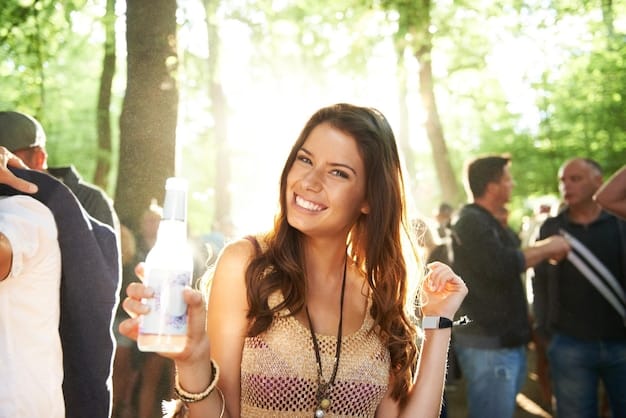
The Dangers of Dehydration
Dehydration occurs when your body loses more fluids than it takes in. This imbalance can disrupt normal bodily functions, leading to a range of health issues. At a concert, several factors can contribute to rapid fluid loss.
- Physical Exertion: Dancing, jumping, and moving around all increase your body’s need for fluids.
- Environmental Factors: Hot weather, direct sunlight, and crowded conditions can accelerate sweat loss.
- Alcohol Consumption: Alcoholic beverages have a diuretic effect, causing your body to lose more fluids through urination.
Consequences of dehydration can include muscle cramps, headaches, and decreased cognitive function. In severe cases, dehydration can lead to heat exhaustion or heatstroke, which require immediate medical attention.
Recognizing the Signs
Being able to recognize the early signs of dehydration is crucial for taking timely action. Symptoms can vary from person to person, but common indicators include:
- Thirst: This is your body’s primary signal that it needs more fluids.
- Dry Mouth and Throat: A lack of saliva can make it difficult to swallow and speak.
- Dark Urine: Lighter colored urine indicates better hydration.
- Headache: Dehydration can cause blood vessels in the brain to constrict, leading to headaches.
Staying aware of these signs and acting quickly to rehydrate can prevent more serious complications and keep you enjoying the concert.
In conclusion, being aware of the risks of dehydration and recognizing its early signs are essential for staying safe and healthy at concerts. By understanding these factors, you can take proactive steps to maintain optimal hydration levels throughout the event.
Strategy 1: Plan Ahead with Pre-hydration
One of the most effective strategies for staying hydrated at a concert is to plan ahead. Pre-hydration involves increasing your fluid intake in the days and hours leading up to the event. This ensures that your body is adequately hydrated before you even step foot into the venue.
Pre-concert hydration is not a last-minute tactic but a sustained effort to keep your body’s fluid levels optimal. Here’s how to implement this strategy effectively.
Hydrate for at Least 24 Hours Before
Start hydrating at least 24 hours before the concert. This allows your body to absorb and distribute fluids effectively. Focus on drinking water and other hydrating beverages throughout the day.
- Water: Aim for at least eight glasses of water per day.
- Sports Drinks: Electrolyte-rich sports drinks can help balance fluid and electrolyte levels.
- Fruits and Vegetables: Watermelon, cucumbers, and other water-rich foods can contribute to hydration.
Avoid sugary drinks like soda and excessive caffeine, as these can have a dehydrating effect.
Avoid Alcohol the Day Before
Alcohol is a diuretic, meaning it increases urine production and can lead to dehydration. Avoiding alcohol the day before the concert can help ensure that your body is properly hydrated and ready for the event. If you do choose to consume alcohol, do so in moderation and alternate with water.
Additionally, be mindful of other potentially dehydrating substances, such as caffeine-heavy beverages. The goal is to start the concert already well-hydrated, so focusing on water and electrolyte-rich drinks is optimal.
What to Drink Before the Concert
Choosing the right beverages before the concert can make a big difference in your hydration levels. Prioritize options that provide not only fluids but also essential electrolytes. Some great options include:
- Water: The simplest and most effective hydrating beverage.
- Coconut Water: Naturally rich in electrolytes like potassium and sodium.
- Electrolyte Tablets: Dissolve in water for a quick boost of electrolytes.
These choices can help you maintain fluid balance and prevent dehydration, ensuring you stay energized throughout the show.
By implementing a pre-hydration strategy, you can significantly reduce your risk of dehydration and enjoy the concert to the fullest. Starting early and choosing the right beverages are key components of this approach, setting you up for a healthier and more enjoyable concert experience.
Strategy 2: Understand Electrolyte Balance
Maintaining electrolyte balance is crucial for proper hydration, especially during high-energy activities like concerts. Electrolytes are minerals in your body that have an electric charge and play a vital role in regulating fluid balance, muscle contractions, and nerve functions. Understanding how to maintain this balance can significantly enhance your concert experience.
Sweating during a concert can deplete electrolytes, leading to imbalances that cause fatigue, muscle cramps, and other symptoms. Replenishing these electrolytes is essential for staying hydrated and feeling your best.
What Are Electrolytes?
Electrolytes are essential minerals that help regulate various bodily functions. The primary electrolytes include:
- Sodium: Helps regulate fluid balance and nerve function.
- Potassium: Essential for muscle contractions and maintaining fluid balance.
- Magnesium: Supports muscle and nerve function, as well as energy production.
These electrolytes work together to keep your body functioning optimally. Replenishing them during a concert can prevent dehydration-related symptoms.
Sports Drinks vs. Water: Which Is Better?
When it comes to hydration, both water and sports drinks have their benefits. Water is essential for rehydrating, but sports drinks offer the added advantage of electrolytes. The choice depends on the intensity and duration of the concert.
For shorter, less intense concerts, water may be sufficient. However, for longer, high-energy events, sports drinks can help replenish lost electrolytes and provide a boost of energy. Look for sports drinks with moderate sugar content to avoid energy crashes later on.
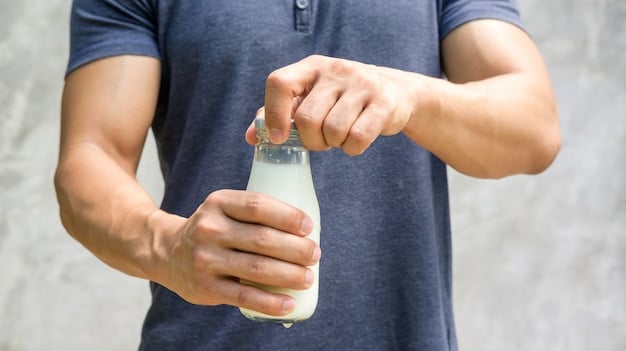
Electrolyte-Rich Foods and Drinks
In addition to sports drinks, several foods and beverages are naturally rich in electrolytes. Incorporating these into your pre-concert and during-concert hydration strategies can provide a balanced approach.
- Coconut Water: A natural source of potassium, sodium, and magnesium.
- Bananas: Rich in potassium and easy to consume.
- Oranges: Provide potassium and fluids.
These options can help maintain electrolyte balance without relying solely on processed sports drinks. Be mindful of bringing outside food and drinks into the venue, as they may not be allowed.
Maintaining electrolyte balance is a critical component of staying hydrated at concerts. By understanding the role of electrolytes and choosing the right beverages and foods, you can ensure your body functions optimally and you enjoy the show without feeling drained. Whether you opt for sports drinks, natural electrolyte sources, or both, keeping your electrolytes in check will contribute to a healthier and more enjoyable concert experience.
Strategy 3: Avoid Dehydrating Substances
While it’s essential to focus on what to drink for hydration, it’s equally important to avoid substances that can dehydrate you further. Concerts often involve alcohol and caffeine, both of which can have a diuretic effect and exacerbate dehydration. Being mindful of these substances is crucial for maintaining optimal hydration levels.
Limiting or avoiding dehydrating substances can significantly reduce your risk of dehydration and help you stay energized throughout the event. Understanding the effects of these substances is the first step in making informed choices.
The Effects of Alcohol
Alcohol is a well-known diuretic, meaning it increases urine production and can lead to fluid loss. This effect can be particularly problematic at concerts, where you’re already losing fluids through sweat and physical activity.
- Increased Urination: Alcohol inhibits the release of a hormone called vasopressin, which helps regulate fluid balance.
- Impaired Judgment: Alcohol can impair your judgment, making you less likely to remember to drink water.
- Dehydration Symptoms: Alcohol can exacerbate symptoms like headache and fatigue.
If you choose to drink alcohol at a concert, do so in moderation and alternate with water to minimize its dehydrating effects.
Caffeine’s Impact on Hydration
Caffeine, found in coffee, tea, and many energy drinks, can also have a diuretic effect. While caffeine’s impact on hydration is less severe than alcohol’s, it can still contribute to fluid loss, especially when consumed in large quantities.
Like alcohol, caffeine can increase urine production, leading to dehydration. Additionally, caffeine can increase your heart rate and blood pressure, which can exacerbate the effects of physical exertion at a concert. Be mindful of your caffeine intake, especially if you’re already sweating and active.
Stay Hydrated During the Show
Effectively managing hydration during the concert involves consistent, mindful choices. Here are a few tips to stay hydrated throughout the event:
- Bring a Water Bottle: If allowed, bring a reusable water bottle and refill it regularly.
- Pace Yourself: Avoid excessive alcohol or caffeine consumption.
- Take Breaks: Step away from the crowd to cool down and rehydrate.
By being proactive and making smart choices about what you consume, you can maintain hydration levels and enjoy the concert without feeling drained.
Avoiding dehydrating substances is a crucial strategy for staying hydrated at concerts. By understanding the effects of alcohol and caffeine and making mindful choices, you can minimize fluid loss and enjoy the event to the fullest. Prioritize water, pace yourself with alcohol and caffeine, and take breaks to rehydrate regularly. These steps will help you stay energized and healthy throughout the concert.
| Key Point | Brief Description |
|---|---|
| 💧 Pre-Hydration | Hydrate at least 24 hours before the concert with water and electrolyte-rich drinks. |
| ⚡ Electrolyte Balance | Maintain electrolyte levels with sports drinks, coconut water, and electrolyte-rich foods. |
| 🚫 Avoid Dehydrating Substances | Limit alcohol and caffeine to minimize fluid loss. |
| ⏰ Regular Hydration | Drink water consistently throughout the concert. |
Frequently Asked Questions
▼
Aim to drink at least eight glasses of water in the 24 hours leading up to the concert. This helps ensure your body is well-hydrated before you even arrive at the venue.
▼
Sports drinks can be beneficial as they replenish electrolytes lost through sweat. However, water is essential too. A combination of both can be the most effective strategy.
▼
Early signs include thirst, dry mouth, dark urine, and headache. Recognizing these symptoms early allows you to take timely action and rehydrate before the situation worsens.
▼
If you choose to drink alcohol, do so in moderation and alternate with water. This helps to counteract the diuretic effect of alcohol and maintain your hydration levels.
▼
Check the venue’s policies before attending. Many venues allow empty, reusable water bottles that you can refill inside. Taking advantage of this can significantly help in staying hydrated.
Conclusion
Staying hydrated at a concert is crucial for ensuring you enjoy the event safely and to the fullest extent. By planning ahead with pre-hydration, understanding and maintaining your electrolyte balance, and avoiding dehydrating substances, you can keep your energy levels high and your body functioning optimally. Remember to listen to your body, recognize the signs of dehydration, and take proactive steps to rehydrate throughout the show. Armed with these concert hydration strategies, you’re well-equipped to have a fantastic and healthy concert experience.
